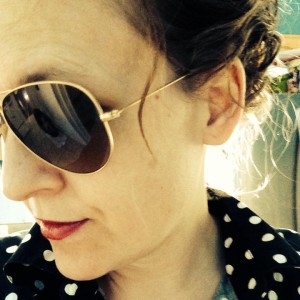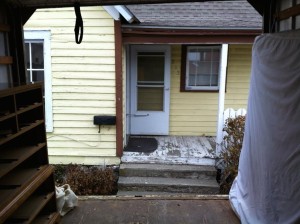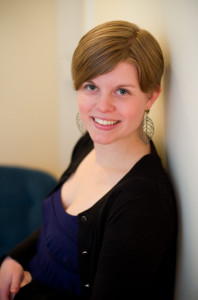Days before, I found the phone number by searching the address on the Internet. A young woman answered, listened, and graciously agreed to give us a tour of our childhood home.
When the day arrives, my older sister and I drive familiar roads in a rental car. We’ve traveled from opposite sides of the country to this point in Illinois; she from Massachusetts, me from Colorado. Park Ridge is one big suburban grid of long, mature tree-lined streets and sidewalks on the northwest edge of Chicago. I roll down the window and whiff the familiar aroma of fresh cut grass mixed with airplane exhaust from nearby O’Hare Airport. It is the smell of roots and flight.
The rental car engine goes quiet by the curb in front of the two story brick bungalow at 704 South Crescent Avenue. Our parents raised the four of us kids here; three sisters and a brother. This was the address on all official forms and most letters addressed to me from 1973 to 1989; from Gerald Ford to George H.W. Bush.
We ring the doorbell on schedule, and a young, upper-class mom answers the door, smiles, and invites us in. We politely walk through renovated rooms where I am tossed between a sense of happy familiarity and disorienting displacement.
We walk through room upon room of fresh paint and updated designs: The front entry minus the cuckoo clock, the living room minus the teal carpet and large flowery wallpaper, the front sitting room minus the TV and plaid couch, the upstairs plus air conditioning, the kitchen plus new appliances and a stunning renovation. We linger in the kitchen and I notice the one big minus. They knocked out this wall, she points and explains, we wanted to make the whole space bigger. That wall once divided the kitchen from my bedroom. Every morning I used to lay in my bed on the other side of that wall, listening to my mom’s early morning WMBI radio programs and dishwasher clatter.
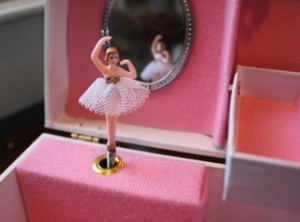 Now the wall has disappeared and my bedroom evaporated entirely, replaced by functional upgrades and a redesigned floor plan. I lost the container that had been crammed full of my girlish years,
Now the wall has disappeared and my bedroom evaporated entirely, replaced by functional upgrades and a redesigned floor plan. I lost the container that had been crammed full of my girlish years,
the hanging macramé plant holders,
clouds of Love’s Baby Soft Jasmin’ perfume,
the sound of tiny nocturnal pet hamster feet running on a creaking wheel,
the wind-up jewelry box ballerina spinning in front of a tiny mirror,
the puffy pink gingham quilt my mom sewed,
and the way I always slept beneath it facing the door,
the muted bass of bands like Boston booming from my brother’s bedroom,
a closet full of off-limits clothes my little sister borrowed anyways,
that one spot on the floor by the cast iron radiator where I sobbed over boys that I loved,
a secret drawer full of seashells and saved letters,
midnight poetry taped to my window.
Gone. The inner sanctum of my childhood entirely dematerialized.
Why do I feel so sad? It’s just a room, I say to my sister as we drive away. She nods. Gets it. Siblings hold pieces of each other’s’ history.
We head out of town and curve through neighborhood streets, past the red and white marquis of the Pickwick Theater and the stadium lights at Maine South High School. By that park swing, I feel the sway and twirl of the six-year-old version of myself. In that parking lot by the high school band door, I feel the wild heartbeat rush of my first kiss; under that one elm tree, the between-two-worlds melancholy of twenty-something. And somewhere around the corner on my way back home, I find the room of my childhood again.
Rooms are the containers that hold the past, for good or ill. They are the spaces that store roots and fragments of who we were, the lives we have lived. Writer, author, Frederick Buechner describes it this way:
“But there is a deeper need yet, I think, and that is the need—not all the time, surely, but from time to time—to enter that still room within us all where the past lives on as a part of the present, where the dead are alive again, where we are most alive ourselves to turnings and to where our journeys have brought us. The name of the room is Remember—the room where with patience, with charity, with quietness of heart, we remember consciously to remember the lives we have lived.” *
Sometimes my little sister and I end our texts or emails with the first line from Harry Connick’s song, “Forever, for Now.” “Meet me on the corner of close and soon,” we write. Then, “oxox” we sign off. Over the years, we’ve come to shorthand it. “Meet me,” we say and understand in a way only siblings can.
Meet me.
Meet me in the place with no address.
Meet me where the remnants of a past still live in pieces and fragments unclaimed, shared by few, in a room no longer contained by walls.
The name of the room is Remember.
* Quoted: Frederick Buechner, A Room Called Remember: Uncollected Pieces (1992)
* * * * *
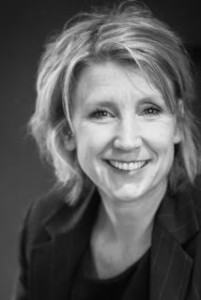 “When Your Bedroom Disappears” is by Kelley J. Leigh. Kelley is a mid-life writer and mom of four sons. Kelley’s home base is a quirky little mountain town in Colorado where she writes openly about intimacy issues and recovery in marriage and faith. Find her over at www.kelleyjleigh.com and on Twitter: twitter.com/KelleyJLeigh
“When Your Bedroom Disappears” is by Kelley J. Leigh. Kelley is a mid-life writer and mom of four sons. Kelley’s home base is a quirky little mountain town in Colorado where she writes openly about intimacy issues and recovery in marriage and faith. Find her over at www.kelleyjleigh.com and on Twitter: twitter.com/KelleyJLeigh




